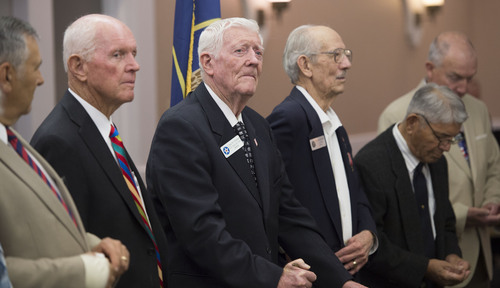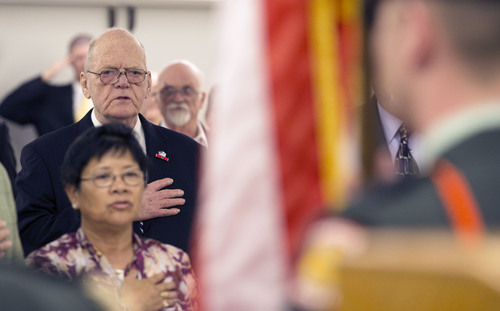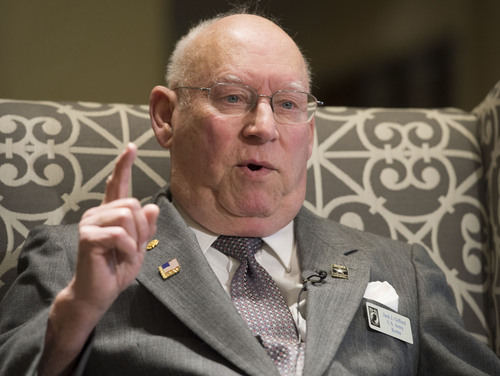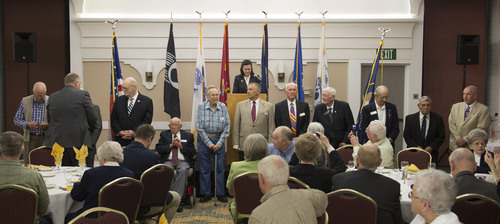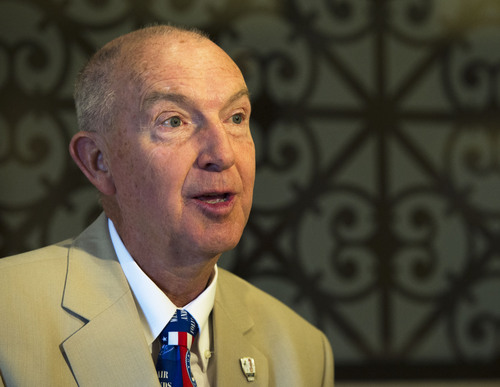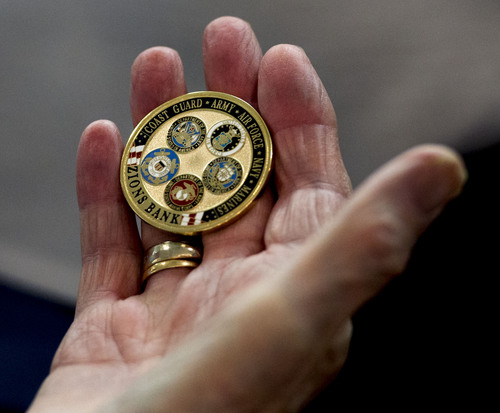This is an archived article that was published on sltrib.com in 2014, and information in the article may be outdated. It is provided only for personal research purposes and may not be reprinted.
Dale Rigby didn't even know he was on a spy ship when the North Koreans captured the USS Pueblo on Jan. 23, 1968.
Rigby was a 20-year-old seaman and baker from Centerville aboard what he was told was an oceanic research vessel. But the Pueblo was really collecting intelligence when the North Koreans attacked it and took 82 of its crew as prisoners.
Rigby and the rest of the crew spent 11 months in captivity.
"It was torture," Rigby said Friday. "There were beatings."
Rigby was one of 11 former prisoners of war who attended an annual luncheon recognizing those who were captured or went missing in combat.
Jill Atwood, the spokeswoman for the Salt Lake City Veterans Hospital, says 12 POWs from Utah have died since last year's luncheon. There remain 35 former POWs in Utah, she said.
The luncheon was held at the DoubleTree hotel near Salt Lake City International Airport. It featured a color guard and a speech from KUTV weather forecaster and Vietnam War veteran Sterling Poulson.
Before the North Koreans attacked, the Pueblo had been in a storm. With the boat rocking, Ribgy tried to brace himself and accidentally stuck a hand in a mixer with a dough hook.
When the North Koreans took prisoners, they judged Rigby to be one of the wounded, he said, and placed him with three other sailors who had shrapnel wounds. Rigby helped care for them during the first few months of the ordeal.
He was later placed with other sailors. Rigby said his captors regularly threatened to execute them as spies.
After the North Koreans released the crew, Rigby accepted a discharge from the Navy. Rigby is now 66 and lives in Ivins. North Korea still has the Pueblo.
For years, Rigby said, he favored U.S. military action to recapture the Pueblo. Eventually, Rigby changed his mind and said Friday he does not favor any hostility for the sake of the ship.
"I just got to the point that I stopped hating the Koreans," Rigby said. "They are a sorry lot."
The Chinese army captured Pfc. Jack J. Gifford on Nov. 20, 1951, during the Korean War. Gifford spent a little more than 21 months as a prisoner, mostly in camps on the Korean peninsula, but briefly he was put on a work detail on the Chinese mainland. The Chinese released Gifford and other prisoners about a month after hostilities ended. Gifford is 85 and lives in Holladay.
Gifford said he has watched news coverage and seen photos of current POW Army Sgt. Bowe Bergdahl, of Hailey, Idaho. But Gifford has a hard time imagining what Bergdahl — who was captured in Afghanistan in 2009 — is suffering.
"No two POW experiences are the same," Gifford said. "Being a POW doesn't mean you can understand what the other POW went through."
Twitter: @natecarlisle


